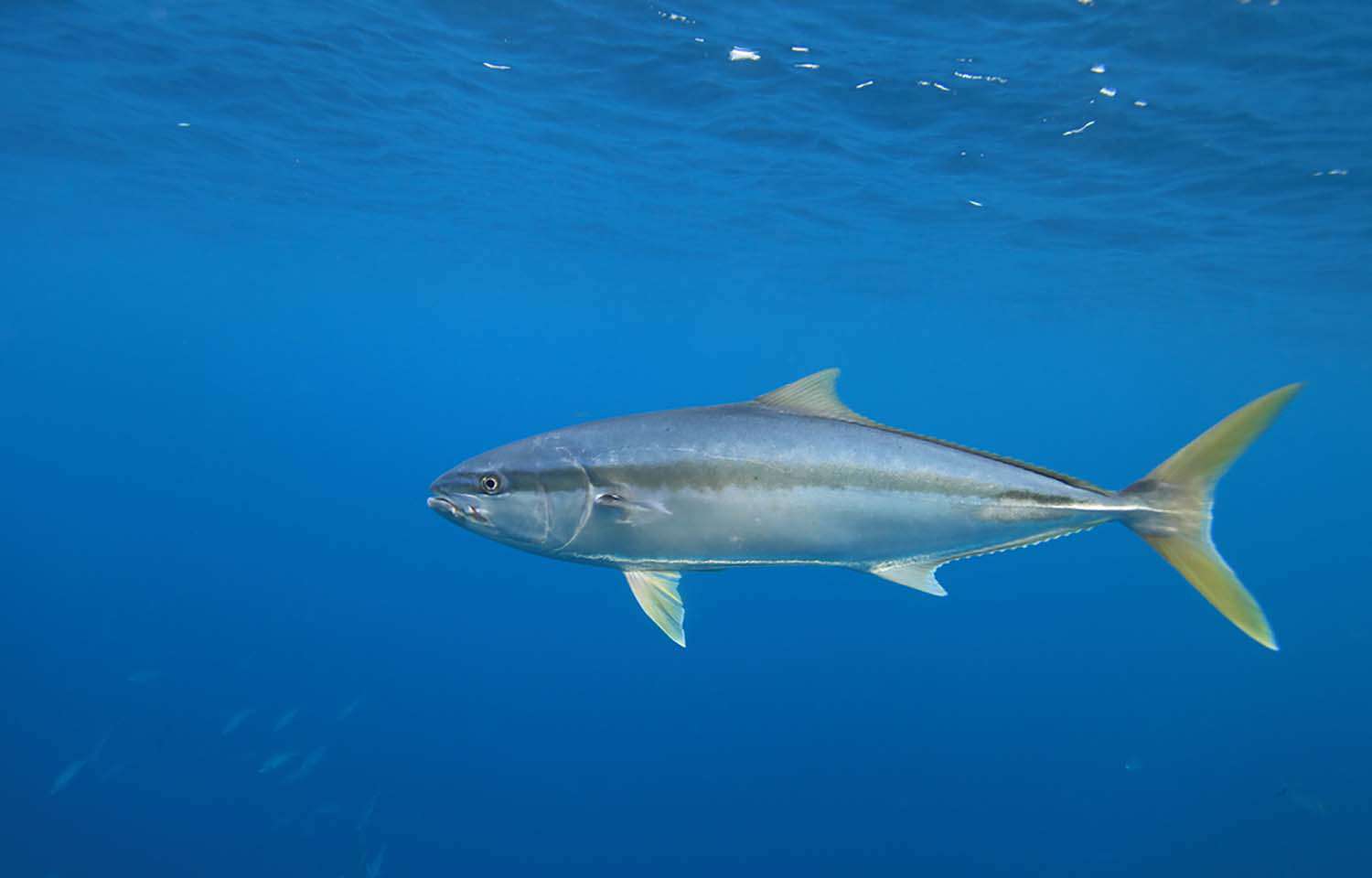Japanese producers of yellowtail amberjack have traditionally reared their fish on a diet of raw fish, but some farmers have begun to shift toward pelleted feed to ensure consistent quality and align with consumer preferences.
Yoshitaka Ikeda, the general manager of Amakusa, Japan-based yellowtail processor Heian Kaisan Co., said that the company now solely sells fish raised on a diet totally comprising extruded pellets (EP), in contrast to the traditional pattern of finishing the yellowtail grow-out period by feeding the species with a slurry of chopped raw fish such as sand lance and mackerel.
“The trend is to not feed raw feed, as it can cause early spoilage and [inconsistent] flavors,” Ikeda said at the 2024 Seafood Osaka Show.
According to Ikeda, discoloration from one generation to the next is another of the major consistency issues involved with yellowtail production that utilizes raw feed. Consumer tastes are also changing toward a cleaner, less oily aftertaste, he said, which aligns more with the taste profile seen in yellowtail raised on an EP diet.
Other benefits touted by Heian of an EP diet include the elimination of harmful bacteria that sometimes arise in raw feed; the customization available with pelleted feed related to multple factors; and the mitigation of environmental pollution because fish fully eat pelleted feed, unlike raw feed, which fish do not fully consume and which can drift outside of net pens, sometimes causing red tides.
With all of these factors in mind, the fish farmed by Heian Kaisan’s supplier, Azukiya Suisan Co., are now raised totally on an EP diet.
Yasuyuki Kabu, the deputy director of the fisheries sales promotion department at Chubu Feed Co., based in Chita, Japan, echoed Ikeda’s opinion on pelleted feed. His company’s Ebisu Buri brand also only uses EP feed that he claims provides longer freshness than conventional moist pellets, which are made including raw fish as an ingredient.
“You can get faster gains with raw fish, but if it doesn’t sell, there’s no point to it,” he said. “Customers are requesting not to feed raw because of color-retention issues.”
Secretary General of the Marine Eco-Label (MEL) Japan Council Hisanori Kanno has also taken notice of the trend, and his counsel has ensured it’s here to stay in Japan.
The council manages Japan’s MEL certification scheme, which references sustainability standards from the benchmarking body GSSI specifying that raw fish cannot be used except for special circumstances. Moist pelleted feed may be categorized as raw fish, so MEL’s new aquaculture standard requires farmers not to use moist pelleted feed regularly during the rearing period. The previous standard remains in effect until 31 July 2025, when certified partners must adjust to the new standard.








